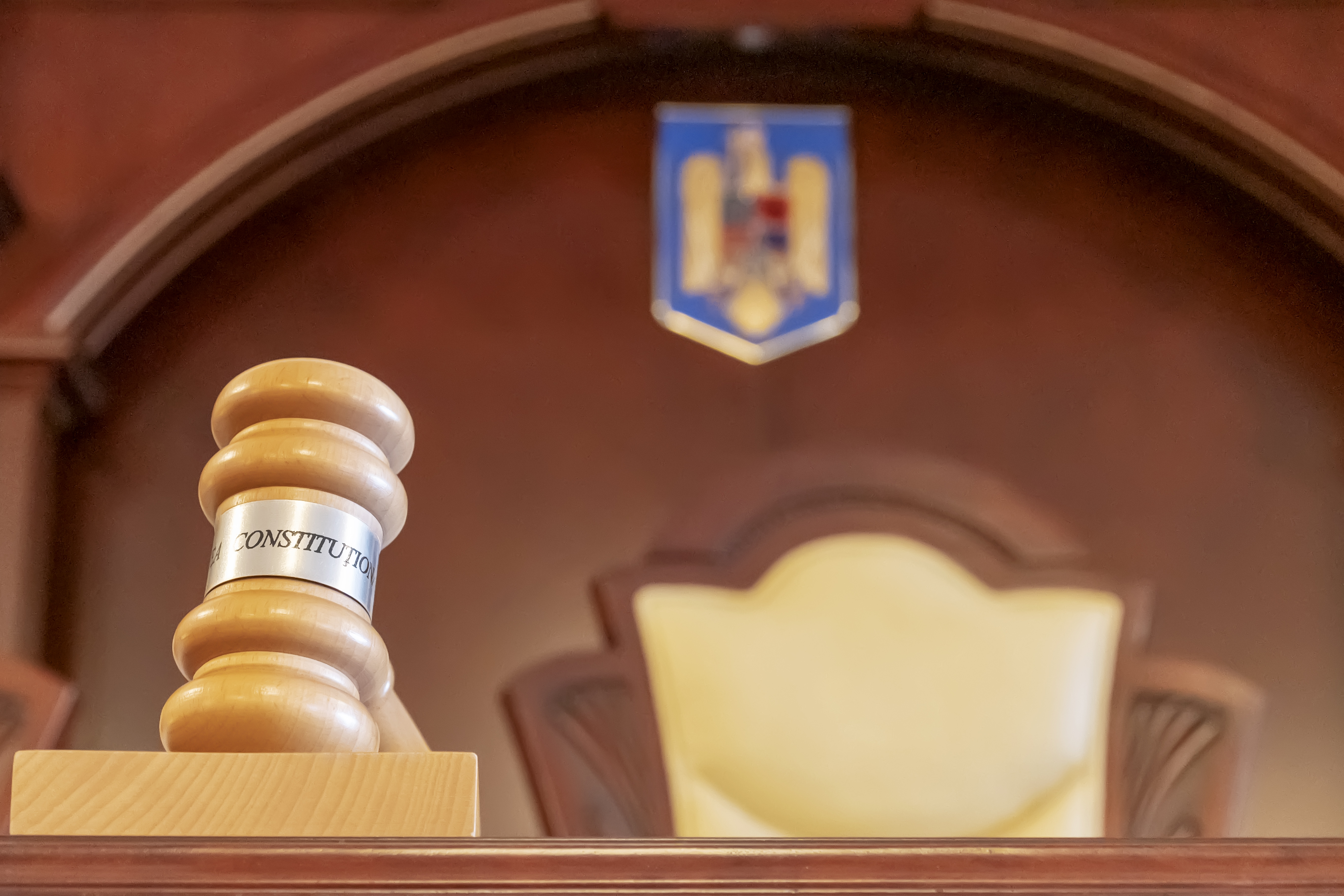I. At the hearing on 26 May 2022, the Constitutional Court, in the context of reviewing the laws subsequent to promulgation, unanimously decided:
– upheld the exception of unconstitutionality and found that the provisions of Article 52 (1) second sentence of the Land Law no. 18/1991 are unconstitutional;
– upheld the exception of unconstitutionality and found that the phrase “as well as subsequent to the final conviction for committing an intentional crime, likely to harm the prestige of the profession” in Article 38 (2) final sentence of Government Ordinance no. 2/2000 on the organization of judicial and extrajudicial technical expertise;
– upheld the exception of unconstitutionality and found that the provisions of Article 248 (5) of the Code of Criminal Procedure, as well as the phrase “takes measures to perform a psychiatric forensic examination, if it was not performed according to paragraph (2)” contained in the provisions of Article 248 (9) of the same normative act are unconstitutional;
– upheld the exception of unconstitutionality and found that the provisions of Article 155 (1) of the Criminal Code are unconstitutional;
Regarding this solution, we specify the following:
Art.155 (1) of the Criminal Code had until April 2018 the following contents: “The run of the statute of limitations of criminal liability is interrupted by the fulfillment of any procedural act in that case“.
By Decision no. 297 of 26 April 2018, the Constitutional Court found that the legislative solution that provides the interruption of the run of the statute of limitations of criminal liability by fulfilling “any procedural act in that case” from the text of Article 155 (1) of the Criminal Code is unconstitutional, because it is unclear, unpredictable, inconsistent and lacking predictability, likely to create an uncertain legal situation for the person having the status of suspect or defendant regarding the conditions in which their criminal liability is invoked for the deeds committed.
In issuing this decision, the Court noted that, after the publication of Decision no. 297 of 26 April 2018, the legislator did not intervene, according to Article 147 (1) of the Fundamental Law, in the sense of reconciling the unconstitutional provisions with the provisions of the Constitution, and did not take measures to replace this text and establish clear conditions by which one can order the interruption of the statute of limitations of criminal liability, by introducing unequivocal terms regarding the conditions and duration of the interruption of the statute of limitations. Therefore, from 2018 until now, the lawmaker ignored the binding effects of Decision no. 297 of 26 April 2018, thus generating a more serious unconstitutionality flaw, because the text of the law remained in force – “the run of the statute of limitations of criminal liability is interrupted by fulfilling “- is an incomplete text and therefore inapplicable. Moreover, due to the lack of active intervention of the lawmaker, during this period the courts construed and applied this legal norm in different and inconsistent ways.
In these conditions, by the hereby decision, the text which remained in force was declared unconstitutional, and the lawmaker shall immediately take the necessary measures for the implementation of Decision no. 297 of 2018, without having to wait for the publication of this decision in the Official Gazette of Romania.
– upheld the exception of unconstitutionality and found that the phrase „provided the situation presented in paragraph (6) occurs” contained in Article 57 (5) of Law no. 302/2004 on international judicial cooperation in criminal matters, as well as the provisions of Article 57 (6) of the same normative act are unconstitutional;
*
The decisions are final and generally binding.
The arguments set out in the grounds for the decisions of the Constitutional Court will be set out in the decisions, which will be published in the Official Gazette of Romania, Part I.
II. At the same hearing, the Constitutional Court postponed for 8 June 2022 the case regarding the objection of unconstitutionality of the Law amending Government Ordinance no. 2/2001 on the legal regime of administrative offences and Law No 286/2009 on the Criminal Code, objection raised by the Advocate of the People.
The External Relations, Press and Protocol Department of the Constitutional Court of Romania




